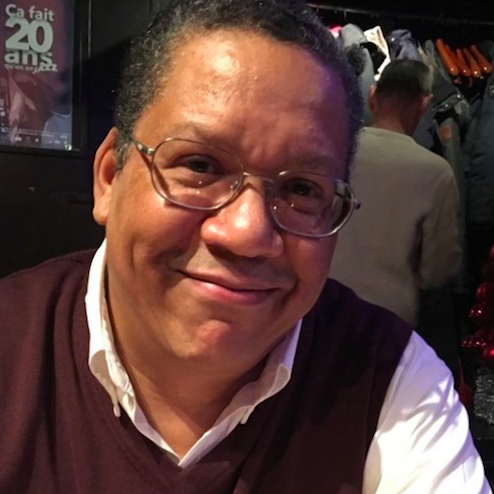
Coral growing on a reef in the Florida Keys. Image credit: Erick Morales Oyola/Unsplash
A rum distillery and a nonprofit are making waves with their new approach to restoring one of the nation’s most endangered ecosystems, the Florida Reefs.
With the help of locals, the Florida Keys-based distillery Papa’s Pilar Rum and the nonprofit Islamorada Conservation and Restoration Education (I.CARE) are looking to grow and distribute corals across the reef system that has declined by 95 percent over the past 60 years.
“It’s important for people to understand that coral reefs are our most biodiverse and productive ecosystems,” Mike Myatt, chief conservation officer for Papa’s Pilar Rum, told TriplePundit. “Although they take up less than 1 percent of the ocean floor, they are responsible for housing more than a quarter of our diverse marine life and play an essential role in protecting our ecosystems and our coastlines.”
The Florida Reefs, the third-largest barrier reef system on the planet, are threatened by rising water temperatures, decreased water quality, overfishing, pollution and the acidification of algae, Myatt said. The reefs are also under stress from the effects of Stony Coral Tissue Loss Disease after an outbreak began in 2014.
“The loss of our coral reefs will cause irreparable damage to our fish population, lessen storm protection, and erode the protective barrier along our coastlines, which help form our beautiful beaches,” Myatt said.
Replanting coral with recreational divers
The partnership employs outplanting, a promising solution to reef loss. Developed on the South Pacific island of New Caledonia in the 1950s, outplanting involves growing coral fragments in nurseries and transferring them to the ocean to replace deteriorated coral.
“We take multiple coral fragments and place them close together on a piece of dead coral. In time, these corals will fuse and, in about 5 to 9 years, they will actually spawn, or in other words, sexually reproduce,” Myatt said. “In nature, when coral larvae settle on the reef, it will take decades before a coral is capable of spawning. The objective is to restore the health of our reefs with corals that are disease- and heat-resistant.”
I.CARE is the only restoration organization in the Florida Keys that involves recreational divers in outplanting.
“Coral reefs need human integration in order to have a chance at survival, so the work that I.CARE is doing is imperative in making an impactful change,” Myatt said. “We’re so proud to partner with them as we continue working toward our ocean conservation and reef restoration goals.”
Since the partnership started, I.CARE has educated more than 2,000 divers and outplanted more than 15,000 corals.
“Our model to involve local divers, local dive shops, local businesses, and recreational divers visiting the Florida Keys with the goal of restoring our reefs is a relatively new approach, but one that is replicable for any dive destination,” said Mike Goldberg, co-founder of I.CARE. “In time, we believe this will happen widely.”
Papa's Pilar aims to plant more corals in partnership with organizations like I.CARE. But more help is needed, and I.CARE's educational program aims to train recreational divers who want to get involved.
“You don’t need to be a scientist to outplant coral. You just have to be a diver who wants to help,” Goldberg said. “I.CARE makes outplanting coral available to all recreational divers through a network of dive shops, as well as allows them to help perform maintenance on all of the outplanted corals.”
The partnership is just one of the active efforts to restore the coral reefs in the Florida Keys, which is imperative for making a larger impact, Goldberg said.
Education and collaboration are crucial to save coral reefs
The abnormally high water temperature in the Florida Keys is a primary factor in the deterioration of the Florida Reefs, Goldberg said. As the ocean heats up, the coral reefs lose zooxanthellae, an algae that is the corals’ primary food source and is responsible for giving it its vibrant color.
“When this happens, you’ll see the coral turn white, which is a process called coral bleaching,” Goldberg said. “While it doesn’t mean that the coral is completely dead once it turns white, it does mean that the coral is under great stress and is in great risk of dying as a direct result of the rising water temperatures.”
Education and the involvement of the diving and sustainable tourism communities are crucial for the success of the outplanting effort to restore coral reefs, Myatt said.
“As the general population learns more about the extent of climate change and how it affects all of the various ecosystems in our world, they are more inclined than ever to want to step in and help make a difference in a direct, tangible way,” he said.
And Goldberg seems to agree. “I have been directly involved with the scuba dive community for over 30 years, and what I can tell you is that scuba divers are quite passionate about the state of our oceans and coral reefs,” he said. “I believe it is important to give them a way to channel that passion by providing them a way to be an integral part of the restoration process. With over 6 million active divers in the world, I don’t believe on any grand scale that reef restoration will be successful without them.”
Heat waves over recent weeks brought coral bleaching in the Florida Keys to a lethal level. In response, Papa's Pilar and I.CARE are shifting focus from outplanting trips to maintenance trips. These efforts include temporarily moving coral fragments from the water to stable environments in land-based nurseries and removing excessive algae cover, which increases due to high ocean temperatures and can smother corals.
Images courtesy of Papa's Pilar Rum

Gary E. Frank is a writer with more than 30 years of experience encompassing journalism, marketing, media relations, speech writing, university communications and corporate communications.














